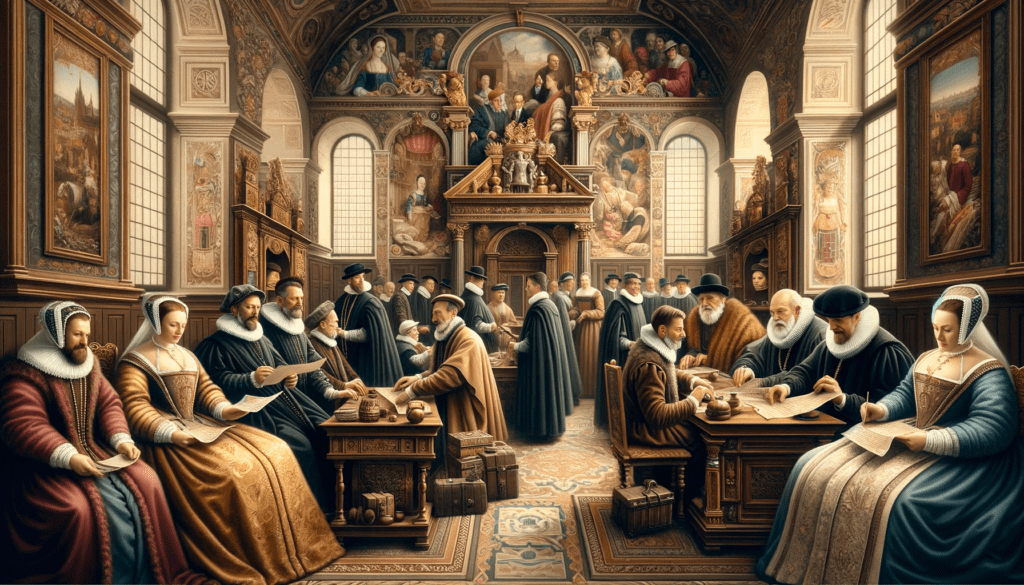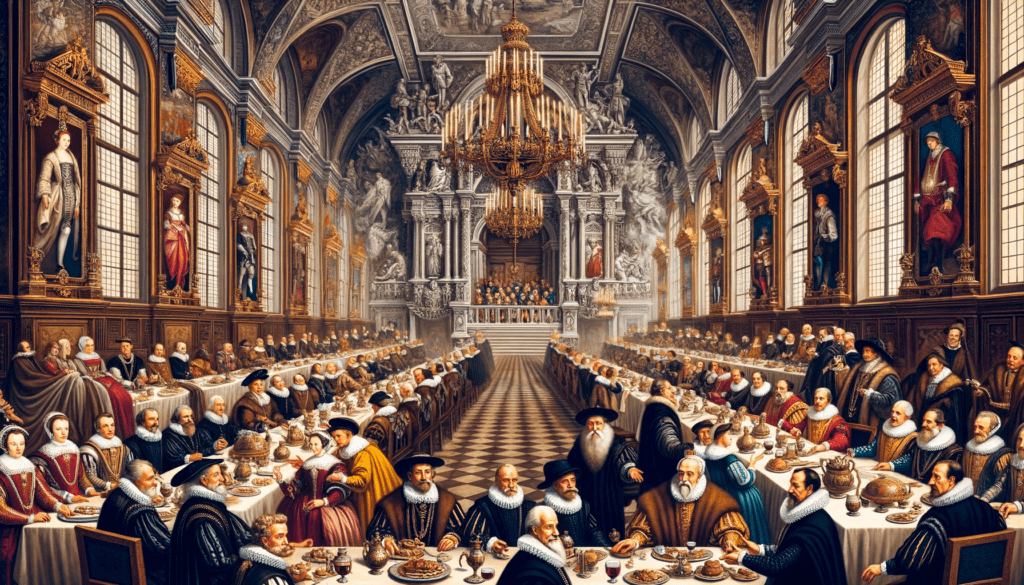The Fugger family, a German banking family that peaked in the 15th and 16th centuries, is known for its immense influence on European finance and politics. In this blog post, we dive deeper into the fascinating history of the Fugger family and their impact on European power politics.
Rise of the Fuggers
The origins of the Fugger family are in the German city of Augsburg, where they began as traders in textiles in the 14th century. However, it was Jakob Fugger the Elder, born in 1459, who would lead the family to greater heights. He began trading in commodities such as copper, silver and precious stones and quickly expanded his business interests. Jakob Fugger was a visionary entrepreneur and managed to increase his wealth through smart investments and entering into international trade agreements.
Financial Power and Influence
What really put the Fuggers on the map was their role as bankers for various European monarchs and emperors. They lent money to powerful rulers, including the Habsburg emperors Maximilian I and Charles V. As a result, the Fuggers were involved in important political events in Europe. Among other things, they financed the election of Charles V as Holy Roman Emperor in 1519.
The Fuggers also had a close relationship with the Vatican and funded the construction of St. Peter’s Basilica in Rome. In doing so, they amassed not only financial power but also considerable influence within the church hierarchy.
A Monopoly on Copper and Silver
In addition to their financial activities, the Fuggers also controlled the production and trade of important commodities. They controlled a copper mine in present-day Slovakia and had an almost monopolistic hold on silver mines in Schwaz, Austria. This gave them a strategic position in the European economy, as copper and silver were essential for the production of coins and weapons.
Political Influence and Alliances
The Fuggers used their wealth not only for financial purposes, but also to exert political influence. They forged alliances with various European monarchs and emperors and served as diplomats in important international affairs. The Fuggers were often involved in negotiations and mediations between European powers, and their advice was highly valued.
Downfall of the Fuggers
Although the Fuggers enjoyed unprecedented wealth and power at their peak, several factors eventually led to their decline. The costs of wars and political conflicts began to take their toll, and the family struggled to meet their financial obligations. In addition, the discovery of new silver mines in America caused silver prices to fall, affecting the profitability of their mining operations.
Legacy and Memory
Although the Fuggers lost their economic supremacy, their legacy lives on. They contributed to the rise of modern capitalism and were pioneers in the use of financial instruments such as bills of exchange and trading companies. Their influence on European power politics cannot be underestimated, and their name is often mentioned in history books.
Conclusion
The Fugger family was a notable German banking family that dominated European finance and politics in the 15th and 16th centuries. Their ability to finance princes, control resources and forge diplomatic alliances gave them a unique position in European power relations. Although they eventually collapsed, their legacy in the history of capitalism and politics is enduring.




Leave a Reply